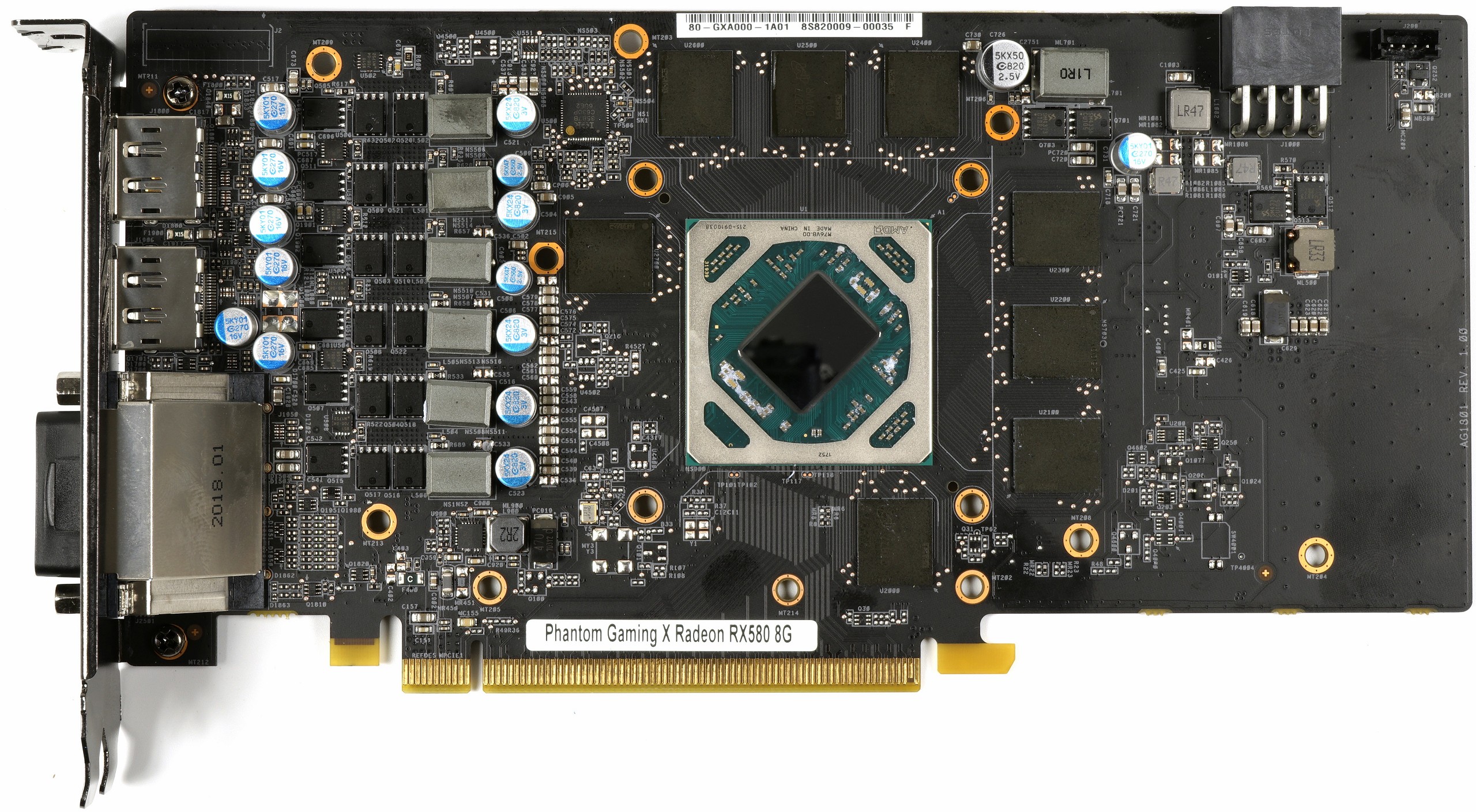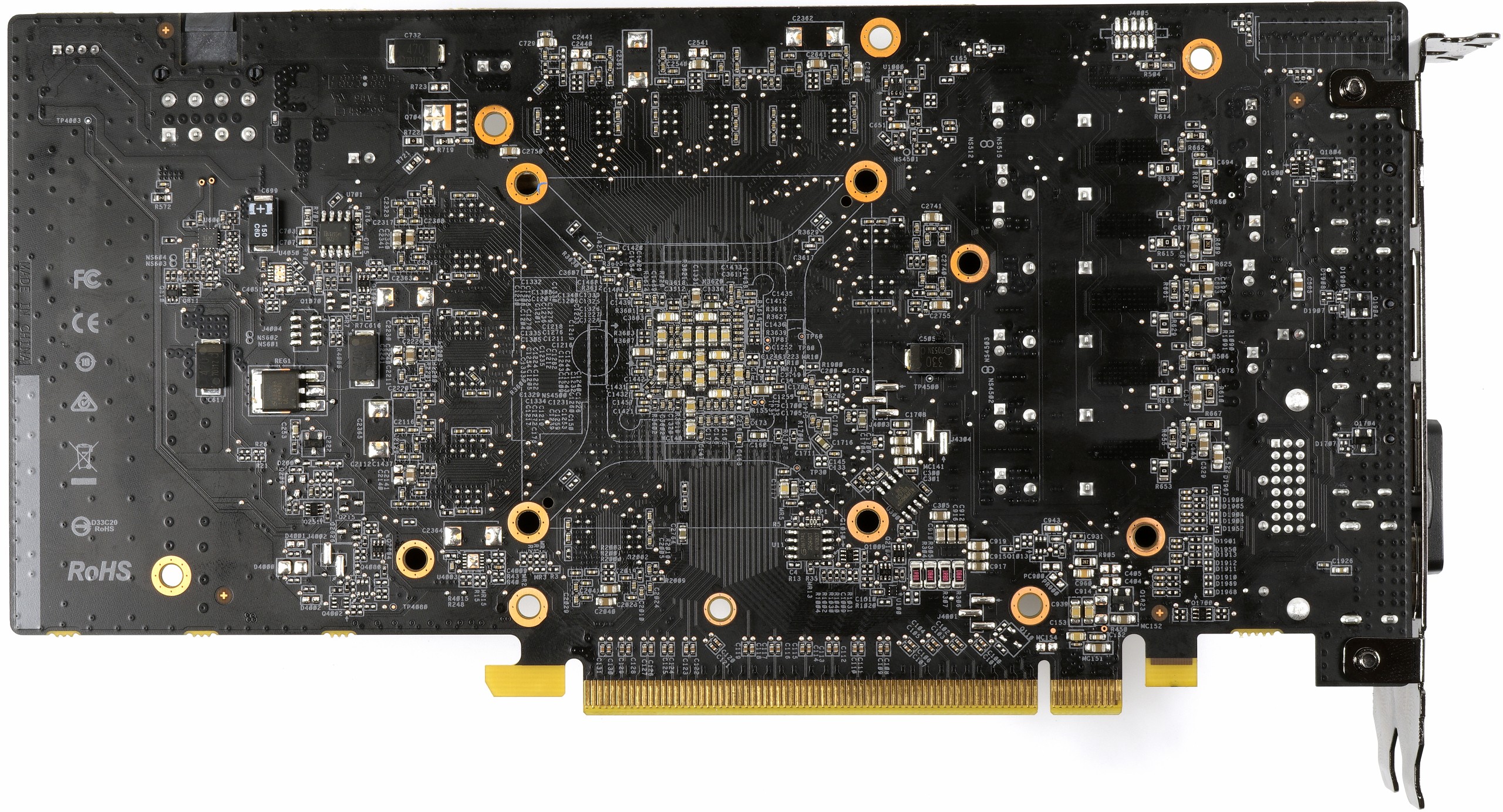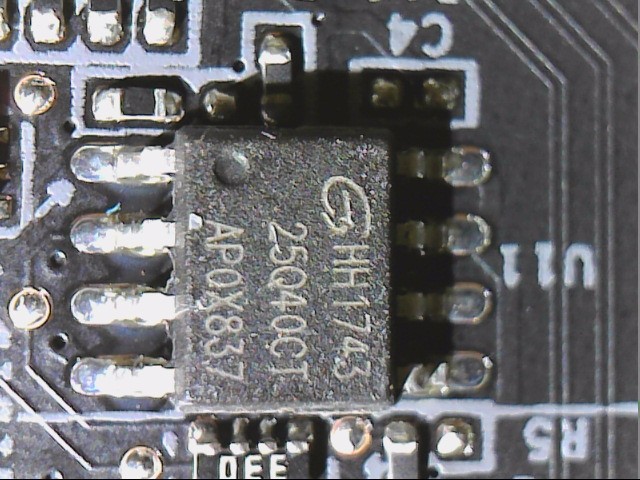ASRock Phantom Gaming X Radeon RX580 8G OC Review: A Solid Rookie Effort
Why you can trust Tom's Hardware
Board Layout & Power Supply
Power Supply And Layout
Although ASRock's board deviates significantly from AMD's reference Radeon RX 480, it's still based on that design's specifications in many respects. Uniquely, however, it's manufactured by Yufo Electronics Co., Ltd. of Taoyuan, Taiwan, rather than PC Partner.
We immediately pick out the GPU's six power phases. Because ASRock uses one eight-pin auxiliary power connector, it doesn't have any issues dividing those phases between the PCIe connector and motherboard slot. Moreover, ASRock consistently uses polymer capacitors at the voltage regulator's critical points.
A close look at how the board was assembled reveals that large components like the coils were not placed by machines. Regardless, ASRock's soldering quality is good, as is the back side's simple surface seal.
International Rectifier's IR3567B dual-output digital multi-phase controller serves as the heart of this card's voltage regulation circuit. Although it supports 6+2-phase designs, in ASRock's case it controls the GPU's six phases and the memory's single phase.
The CHL8510/IR3537 is one of the most popular gate drivers for controlling high- and low-side N-channel MOSFETs. ASRock uses it to control the Phantom Gaming X's six GPU power phases.
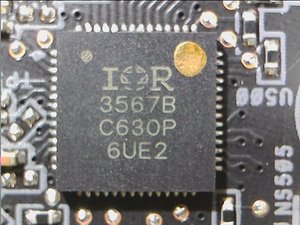
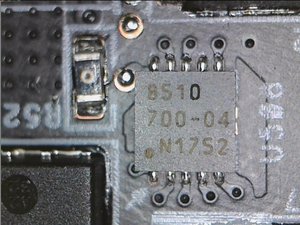
The voltage regulation circuit is implemented in classic form. Whereas some manufacturers favor highly integrated power stages with MOSFETs, gate drivers, and Schottky diodes built-in, ASRock employs discrete components that spread heat out more evenly and are easier to cool.
On the high side of each phase, we find a single Sinopower SM4336 N-channel MOSFET. The low side utilizes two SM4373s per phase.
Get Tom's Hardware's best news and in-depth reviews, straight to your inbox.
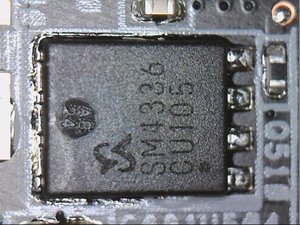
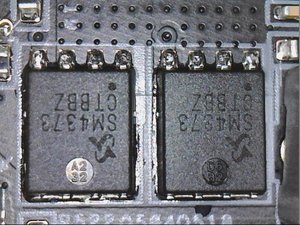
The ferrite-core coils are unlabeled, though we can see they were poured into a housing made of sintered material. More than likely, ASRock went with familiar 220nH coils for the GPU voltage transformers. The memory's 1mH coil is generously-sized indeed.
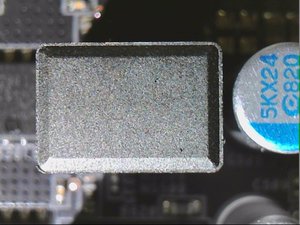
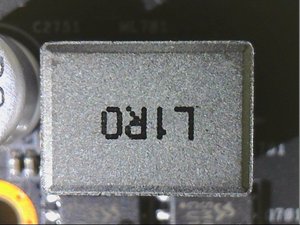
The GDDR5's power supply is implemented through the IR3567B's second output, which controls the voltage transformers directly. Again, there's a single Sinopower SM4336 N-channel MOSFET on the high side, while the low side sports one SM4373.
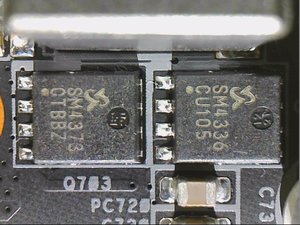
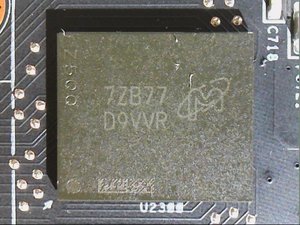
The Phantom Gaming X's memory comes from Micron, and not Samsung like most other Radeon RX 580s. Eight MT51J256M32HF-80:B modules operate at 8 Gb/s, yielding a theoretical bandwidth of 256 GB/s on Ellesmere's 256-bit bus.
ASRock implements a single BIOS, likely for cost reasons. Its location just below the GPU package's edge is rather unusual since that's typically a hot-spot.
MORE: Best Graphics Cards
MORE: Desktop GPU Performance Hierarchy Table
MORE: All Graphics Content
Current page: Board Layout & Power Supply
Prev Page Features & Specifications Next Page Gaming Benchmarks
Igor Wallossek wrote a wide variety of hardware articles for Tom's Hardware, with a strong focus on technical analysis and in-depth reviews. His contributions have spanned a broad spectrum of PC components, including GPUs, CPUs, workstations, and PC builds. His insightful articles provide readers with detailed knowledge to make informed decisions in the ever-evolving tech landscape
-
Ulikedat At least it's a looker and the competition just got a bit more heated (no pun intended).Reply -
alextheblue I have to wonder, since aiming for a cut-down budget design, why not an RX570? An entry level RX580 with halfway decent cooling can be had new for $270. The cheapest 570 I've seen is a reference model for $250. Push a budget aftermarket RX570 closer to $200 and undercut everyone else. Clocks and TDP would be lower (especially if they stuck close to reference), which would have further reduced board and cooler costs.Reply
Or perhaps yields are so good at this point, that there just aren't many cut-down Ellesmere chips getting pushed out the door? -
BulkZerker @alextheblue they are pushing the bang for buck at every point it seems. It begs to wonder if some "cheap" (like as5) thermal paste would help or not. Certainly an aftermarket heatsink would help the temps.Reply -
TJ Hooker If this card is like most 580s, it will respond quite well to lowering the core voltage. With some undervolting (and maybe a slight underclock), you could likely improve power, thermals and noise noticeably with no (or little) impact on performance.Reply -
AnimeMania What's going on with the numbers for GTX 1060 3GB with certain games like Hitman and DOOM, they can't really be that bad, can they?Reply -
Sleepy_Hollowed This is quite a nice card, especially for those looking to switch to FreeSync and the open drivers that AMD provides (For accelerating stuff like data compression or video encoding).Reply
Like all cards, I just wish it was available, this crypto craziness is on the downslope for now, but you never know when cards are just going to be missing from the shelves for months. -
Olle P Reply
Around here there's almost no price difference between a 570 (4GB) and 580 (8GB). The latter is significantly better at the all important 1080p so that's where to make profit.21064926 said:I have to wonder, since aiming for a cut-down budget design, why not an RX570? ...
One can only hope. The 180W drawn is a bit steep IMO.21065443 said:If this card is like most 580s, it will respond quite well to lowering the core voltage. ...
Seems off topic...21065545 said:What's going on with the numbers for GTX 1060 3GB with certain games like Hitman and DOOM, they can't really be that bad, can they?
The 3GB is a cut down version of the 6GB, with fewer ROPs and less memory bandwidth. 3GB VRAM is also insufficient to run newer games efficiently. -
AnimeMania Reply
According to another review on Tom's Hardware, the GTX 1060 3GB had 68.1 FPS on Hitman at Ultra Levels.21066401 said:
Seems off topic...21065545 said:What's going on with the numbers for GTX 1060 3GB with certain games like Hitman and DOOM, they can't really be that bad, can they?
The 3GB is a cut down version of the 6GB, with fewer ROPs and less memory bandwidth. 3GB VRAM is also insufficient to run newer games efficiently.
https://www.tomshardware.com/reviews/nvidia-geforce-gtx-1060-graphics-card-roundup,4724-2.html
The GTX 1060 3GB in this article had 21.2 FPS on Hitman at Very High Levels. I don't think it is off topic if I am questioning the reliability of the benchmarking process used here. I was just wondering why the results seem to fluctuate so wildly. One value is 3 times higher than the other. -
alextheblue Reply
That was my point. There's less competition for cheap RX 570s. Their 580 design cuts down on costs across the board (pun intended). They could cut down even further with the lower-TDP (and presumably cheaper) RX 570 and undercut the entire field substantially. An RX 570 at ~$200 would be enticing for budget builds.21066401 said:Around here there's almost no price difference between a 570 (4GB) and 580 (8GB). The latter is significantly better at the all important 1080p so that's where to make profit.
When they first came out there was often a substantial price difference between full Ellesmere and cut-down Ellesmere. That's why I'm speculating that there just isn't enough supply of 570 chips to make this possible.
